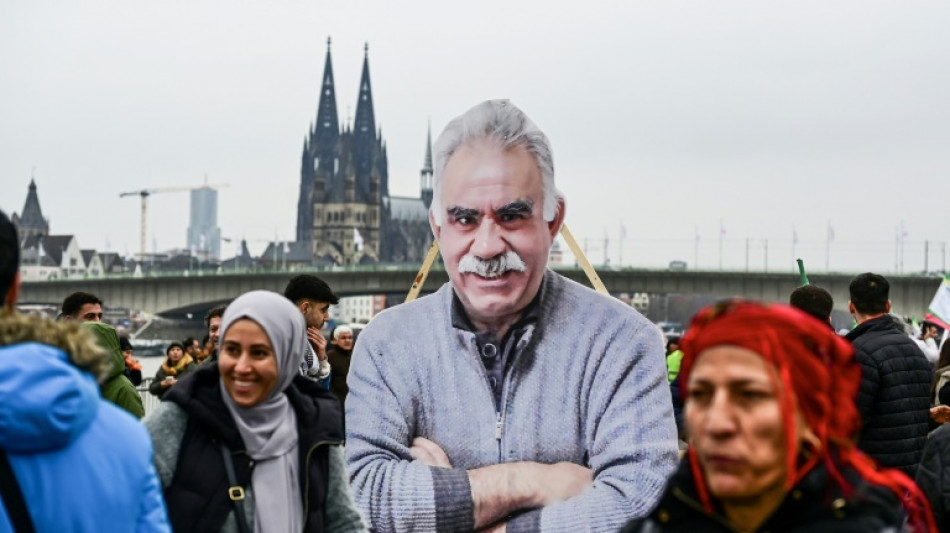
-
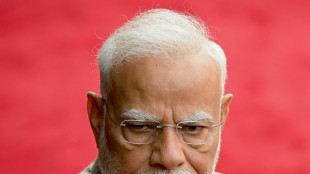 Indian PM Modi set to address nation after Pakistan truce
Indian PM Modi set to address nation after Pakistan truce
-
With Israel ties on the table, UAE offers Saudis an example
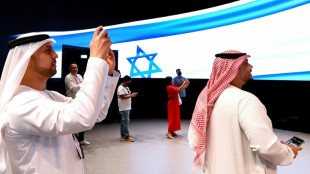
-
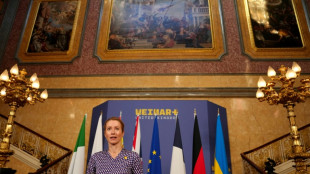 UK urges Putin to 'get serious about peace'
UK urges Putin to 'get serious about peace'
-
Leicester Tigers name Parling to replace Cheika as head coach
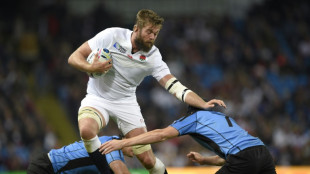
-
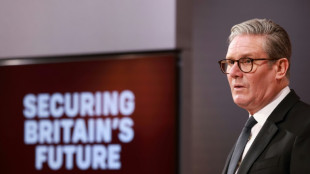 UK govt toughens immigration plans as hard-right gains
UK govt toughens immigration plans as hard-right gains
-
Markets rally after China, US slash tariffs
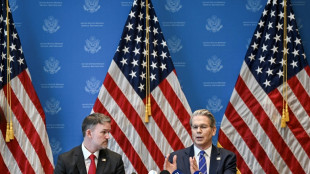
-
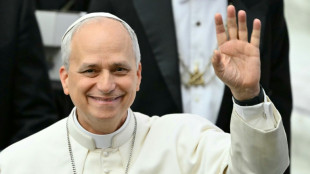 Leo XIV urges release of jailed journalists as Zelensky invites to Ukraine
Leo XIV urges release of jailed journalists as Zelensky invites to Ukraine
-
Film legend Bardot backs Depardieu ahead of sexual assault verdict
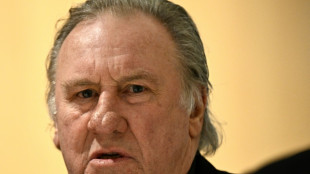
-
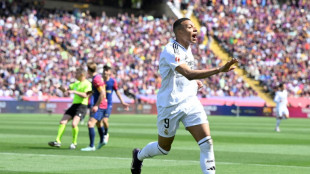 Mbappe shows fallen Real Madrid new road to riches
Mbappe shows fallen Real Madrid new road to riches
-
Drones hit Ukraine as Zelensky awaits Putin reply on talks
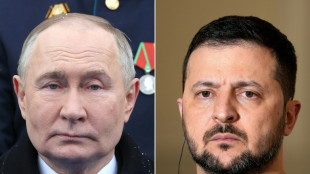
-
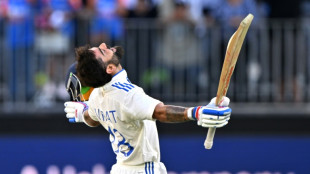 Indian great Kohli follows Rohit in retiring from Test cricket
Indian great Kohli follows Rohit in retiring from Test cricket
-
UK hosts European ministers for Ukraine talks amid ceasefire call
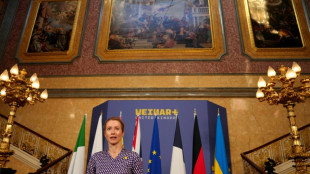
-
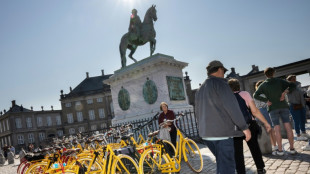 Copenhagen to offer giveaways to eco-friendly tourists
Copenhagen to offer giveaways to eco-friendly tourists
-
Ocalan: founder of the Kurdish militant PKK who authored its end
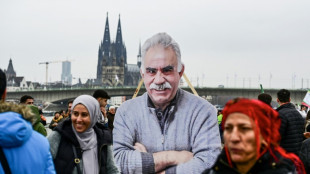
-
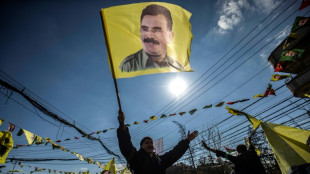 Kurdish militant PKK says disbanding, ending armed struggle
Kurdish militant PKK says disbanding, ending armed struggle
-
Under pressure, UK govt unveils flagship immigration plans
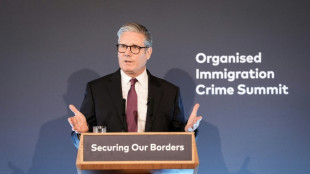
-
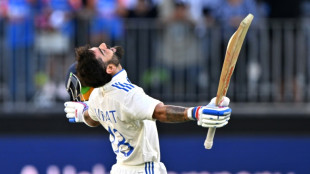 India great Virat Kohli retires from Test cricket
India great Virat Kohli retires from Test cricket
-
US, China agree to slash tariffs in trade war de-escalation
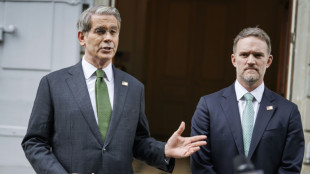
-
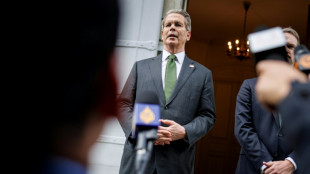 Markets rally after China and US slash tariffs for 90 days
Markets rally after China and US slash tariffs for 90 days
-
India, Pakistan military to confer as ceasefire holds
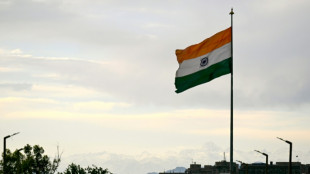
-
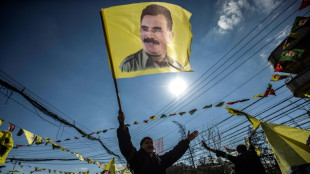 Kurdish militant group PKK says disbanding, ending armed struggle
Kurdish militant group PKK says disbanding, ending armed struggle
-
Virat Kohli: Indian batting great and hero to hundreds of millions
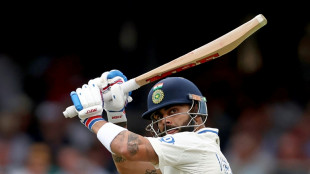
-
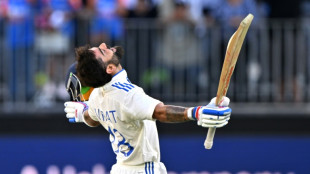 India great Virat Kohli announces retirement from Test cricket
India great Virat Kohli announces retirement from Test cricket
-
Netanyahu vows further fighting despite planned US-Israeli hostage release
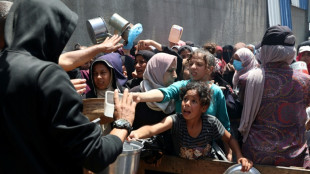
-
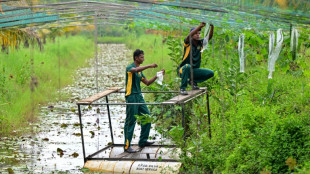 Salt of the earth: Pilot project helping reclaim Sri Lankan farms
Salt of the earth: Pilot project helping reclaim Sri Lankan farms
-
UK towns harness nature to combat rising flood risk
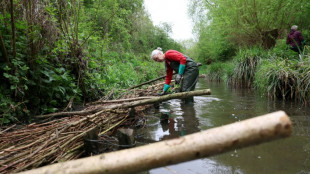
-
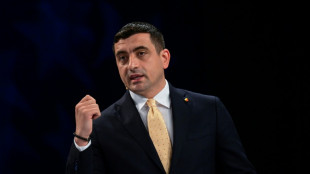 Romania's far-right candidate clear favourite in presidential run-off
Romania's far-right candidate clear favourite in presidential run-off
-
UK lab promises air-con revolution without polluting gases
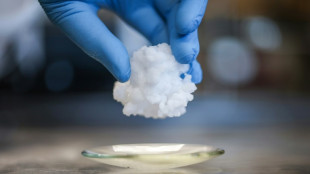
-
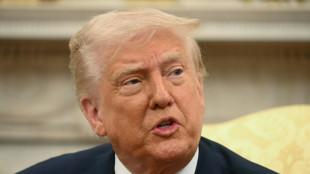 Reel tensions: Trump film trade war looms over Cannes
Reel tensions: Trump film trade war looms over Cannes
-
Peru hopes local miracle gets recognition under new pope
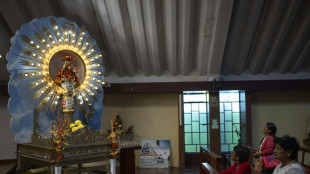
-
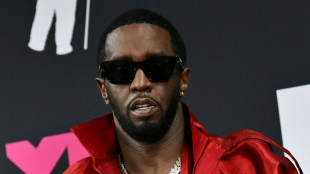 Opening statements in Sean Combs trial expected Monday
Opening statements in Sean Combs trial expected Monday
-
Indian army reports 'first calm night' after Kashmir truce with Pakistan holds
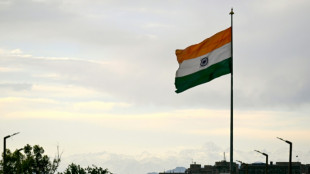
-
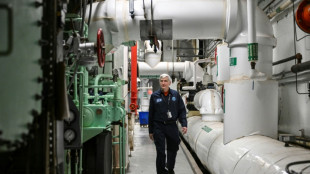 As world heats up, UN cools itself the cool way: with water
As world heats up, UN cools itself the cool way: with water
-
Pacers push Cavs to brink in NBA playoffs, Thunder pull even with Nuggets
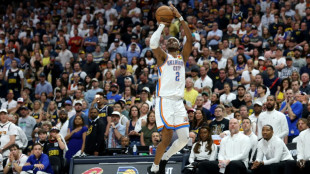
-
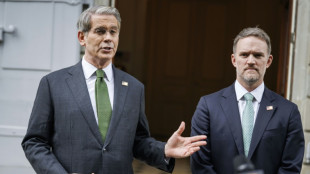 US, China to publish details of 'substantial' trade talks in Geneva
US, China to publish details of 'substantial' trade talks in Geneva
-
Asian markets rally after positive China-US trade talks
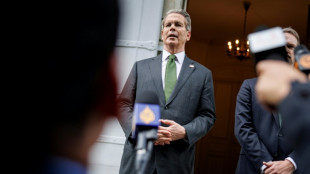
-
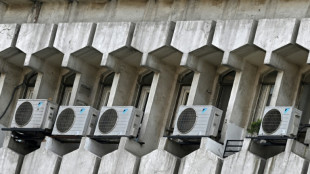 Indians buy 14 million ACs a year, and need many more
Indians buy 14 million ACs a year, and need many more
-
Election campaigning kicks off in South Korea
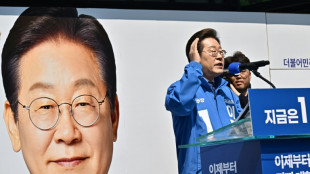
-
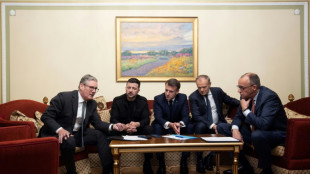 UK hosts European ministers for Ukraine talks after ceasefire ultimatum
UK hosts European ministers for Ukraine talks after ceasefire ultimatum
-
Leo XIV gets down to business on first full week as pope
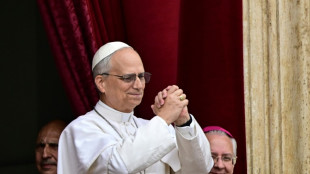
-
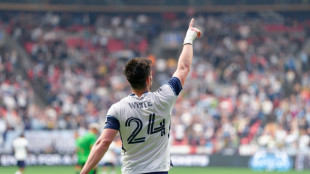 White at the double as Whitecaps fight back against LAFC
White at the double as Whitecaps fight back against LAFC
-
Trump hails Air Force One 'gift' after Qatari luxury jet reports
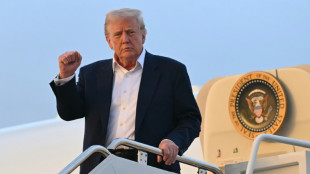
-
 'Tool for grifters': AI deepfakes push bogus sexual cures
'Tool for grifters': AI deepfakes push bogus sexual cures
-
US and China to publish details of 'substantial' trade talks in Geneva
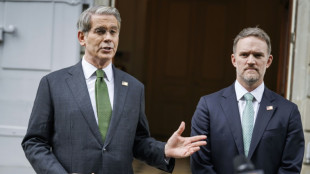
-
 Chinese EV battery giant CATL aims to raise $4 bn in Hong Kong IPO
Chinese EV battery giant CATL aims to raise $4 bn in Hong Kong IPO
-
Kiwi Fox wins PGA Myrtle Beach title in playoff
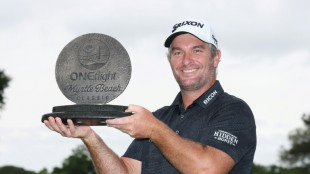
-
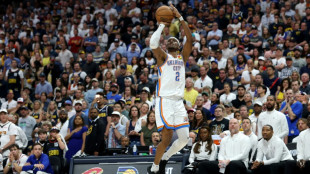 Thunder edge Nuggets to level NBA playoff series
Thunder edge Nuggets to level NBA playoff series
-
Straka holds firm to win PGA Tour's Truist Championship
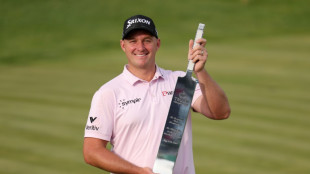
-
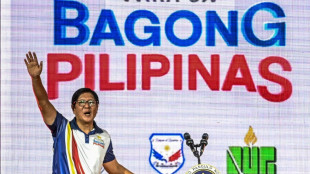 Philippines heads to polls with Marcos-Duterte feud centre stage
Philippines heads to polls with Marcos-Duterte feud centre stage
-
Napoli give Inter Scudetto hope after being held by Genoa
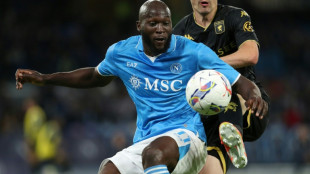

Ocalan: founder of the Kurdish militant PKK who authored its end
Abdullah Ocalan, the jailed founder of the militant Kurdistan Workers' Party (PKK), is an icon to many Kurds but a "terrorist" to many within wider Turkish society.
After a decades-long insurgency against the Turkish state that resulted in tens of thousands of deaths, the PKK said on Monday it was disbanding and ending its armed struggle.
The move came after Ocalan issued a historic call on February 27 for his fighters to lay down their arms in a major step towards ending the decades-long conflict.
Now 76, Ocalan has been held in solitary confinement since 1999 on Imrali prison island near Istanbul.
But since October, when Turkey tentatively moved to reset ties with the PKK, Ocalan has been visited several times by lawmakers from the pro-Kurdish opposition DEM party.
For many Turks, the PKK leader is public enemy number one.
He founded the group in 1978. Six years later, it began an insurgency demanding independence and later broader autonomy in Turkey's mostly Kurdish southeast.
A Marxist-inspired group, the PKK was blacklisted as a "terror" organisation by Ankara, Washington, Brussels and many other Western countries.
- An olive branch -
Attitudes began shifting in October when ultra-nationalist MHP leader Devlet Bahceli, a close ally of President Recep Tayyip Erdogan, offered Ocalan an olive branch if he would publicly renounce violence.
The next day, the former guerrilla, who embodies the decades-long Kurdish rebellion, received his first family visit in four years.
He sent back a message saying he alone could shift the Kurdish question "from an arena of conflict and violence to one of law and politics", later offering assurances he was "ready to... make the call".
Ankara's move came shortly before Syrian rebels overthrew ruler Bashar al-Assad, upending the regional balance of power and thrusting Turkey's complex relationship with the Kurds into the spotlight.
- From village life to militancy -
Ocalan was born on April 4, 1949, one of six siblings in a mixed Turkish-Kurdish peasant family in Omerli, a village in Turkey's southeast.
His mother tongue is Turkish.
He became a left-wing activist while studying politics at university in Ankara and was first jailed in 1972.
He set up the PKK six years later, then spent years on the run, launching the movement's armed struggle in 1984.
Taking refuge in Syria, he led the fight from there, causing friction between Damascus and Ankara.
Forced out in 1998, he moved from Russia to Italy to Greece in search of a haven, ending up at the Greek consulate in Kenya, where US agents got wind of his presence and tipped off Turkey.
He was arrested on February 15, 1999, after being lured into a vehicle in a Hollywood-style operation by Turkish security forces.
Sentenced to death, he escaped the gallows when Turkey started abolishing capital punishment in 2002, living out the rest of his days in isolation on Imrali prison island in the Sea of Marmara near Istanbul.
For many Kurds, he is a hero whom they refer to as "Apo" (uncle). But Turks often call him "bebek katili" (baby killer) for ruthless tactics that include the bombing of civilian targets.
- Jailed but still leading -
With Ocalan's arrest, Ankara thought it had decapitated the PKK.
But even from his cell he continued to lead, ordering a ceasefire that lasted from 1999 until 2004.
In 2005, he ordered followers to renounce the idea of an independent Kurdish state and campaign for autonomy in their respective countries.
Tentative moves to resolve Turkey's "Kurdish problem" began in 2008 and several years later Ocalan became involved in the first unofficial peace talks, when Erdogan was prime minister.
Led by then spy chief Hakan Fidan -- who is now foreign minister -- the talks raised Kurdish hopes for a solution with their future within Turkey's borders.
But the effort collapsed in July 2015, sparking one of the deadliest chapters in the conflict.
The government has defended its de facto silencing of Ocalan, saying he failed to convince the PKK of the need for peace.
Seen as the world's largest stateless people, Kurds were left without a country when the Ottoman Empire collapsed after World War I.
Although most live in Turkey, where they make up around a fifth of the population, the Kurds are also spread across Syria, Iraq and Iran.
Turkey's widescale use of combat drones has pushed most Kurdish fighters into northern Syria and Iraq, where Ankara has continued its raids.
P.Staeheli--VB
